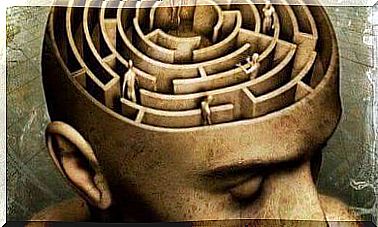Learn More About Delirium In Alzheimer’s Disease

Alzheimer’s disease is the most common cause of dementia. Therefore, the deterioration of the cognitive functions seems to be at the core of the cognitive symptoms of the disease. However, other symptoms may also play an important role. Among many others, we can observe delirium in Alzheimer’s disease.
This neurocognitive disorder changes cognition and attention. Usually it is the physiological consequence of a medical complication. In addition, Alzheimer’s disease consists of a degenerative process characterized by the loss of cholinergic neurons, which are essential for the proper functioning of the brain.
Delirium is a clinical disorder that affects attention and cognition. However, we do not know its pathophysiology very well. Although researchers systematically identify cognitive impairment and dementia as the main risk factors for delirium [2, 3], the mechanisms that contribute to this risk increase are unclear.
According to a 2009 study, the manifestation of delusions can affect cognition. Thus, delirium is manifested in 66-88% of patients with Alzheimer’s disease. Thus, these two pathologies go hand in hand. This study showed that delirium in Alzheimer’s disease accelerates cognitive decline in patients.
Delirium
Pathologically, diffuse cerebral dysfunction causes delirium. Delirium has several causes. Authors Blass and Gibson combined these reasons into two possibilities:
- Drugs
- Cerebral metabolic impairment
Drug use causes delirium. However, it seems that many of the conditions that can cause delirium also tend to cause dementia if it is prolonged. For example, hypoxia or hypoglycemia can cause brain failure and delusions. However, if they are long-lasting, they can cause permanent brain damage and dementia [5].

Delirium in Alzheimer’s disease
Today , researchers classify delirium and dementia as two different conditions. However, between 1930 and 1970, delirium and dementia were considered as different forms or stages of the same process. For example, in 1959, Engel and Romano wrote [1]:
Therefore, we can say that delirium and Alzheimer’s disease are related to reduced cerebral metabolic rates. In addition, both pathologies are associated with an altered cholinergic function.
Patients with dementia also manifest structural brain damage. In the United States, however, if an autopsy discovered that a patient first diagnosed with delirium actually had a pathological stigma of Alzheimer’s disease, the diagnosis would change to Alzheimer’s disease.

Treatment
Cholinesterase inhibitors can help treat delirium, as well as Alzheimer’s disease. Therefore, they are also prescribed for delirium in Alzheimer’s disease. Cholinesterase inhibitors may be particularly useful for patients in a postoperative setting. In the same way, they also seem to help patients who have significant attention problems.
In Sweden, Dr. Bengt Winbald has already conducted studies on this possibility. However, patients should use cholinesterase inhibitors with caution, mainly because glaucoma drugs can cause bronchospasm or sick sinus syndrome (SSS). With this in mind, doctors should exercise caution. Several studies are needed to carefully test whether cholinergic treatment protects the brain against metabolic encephalopathy and its consequences.









